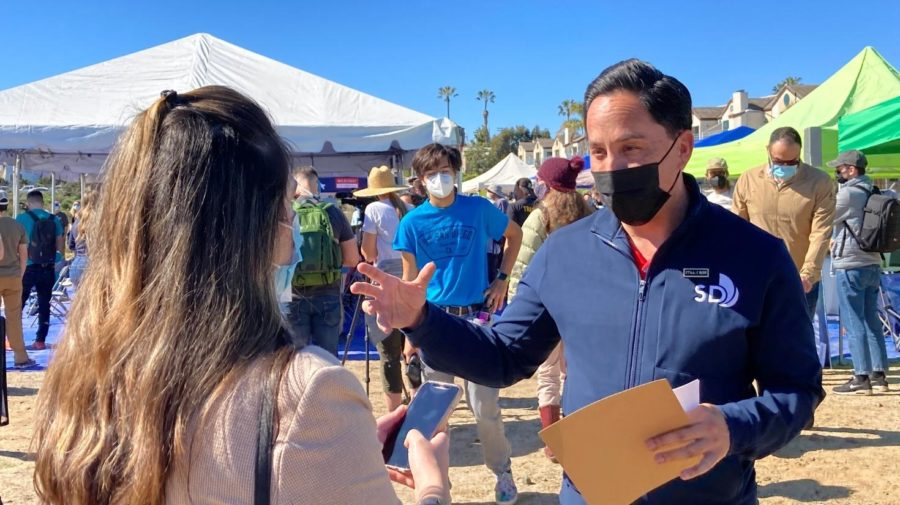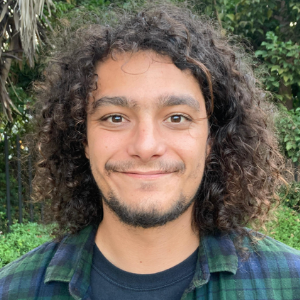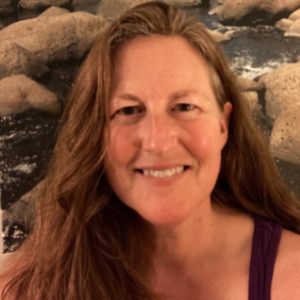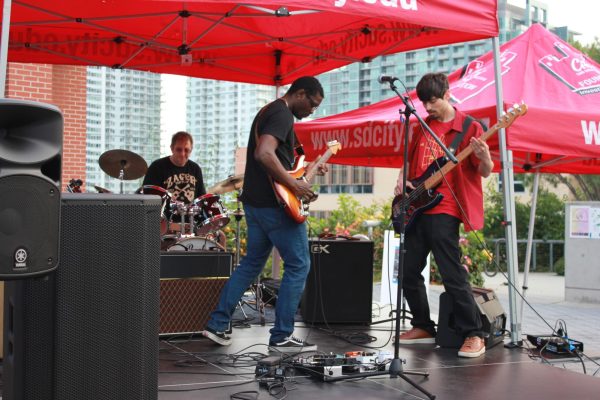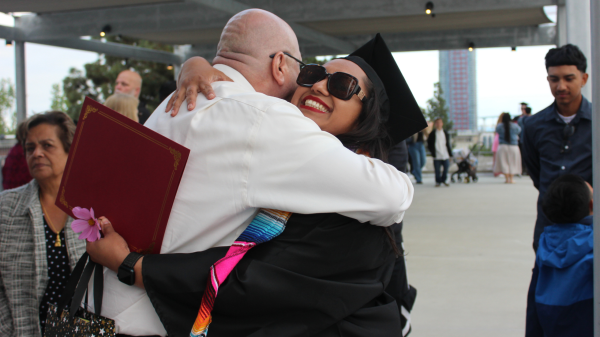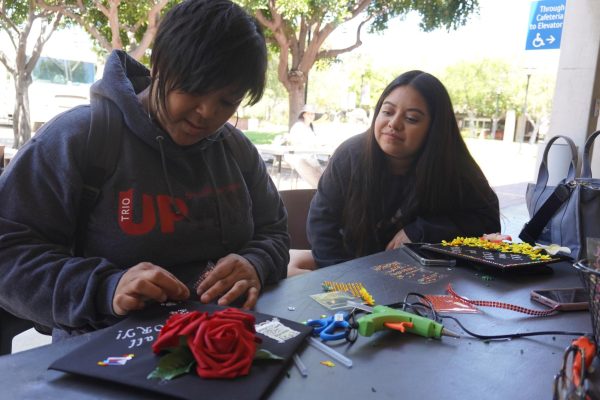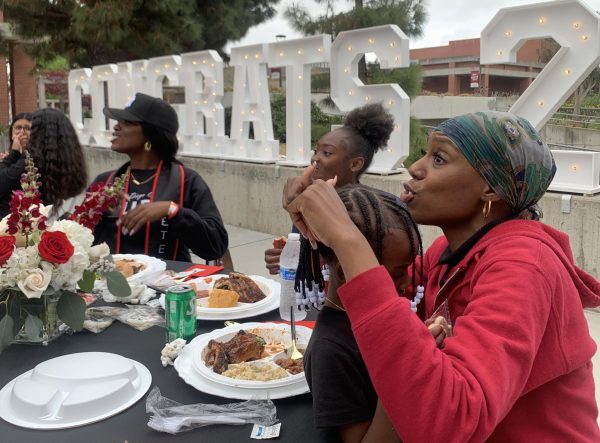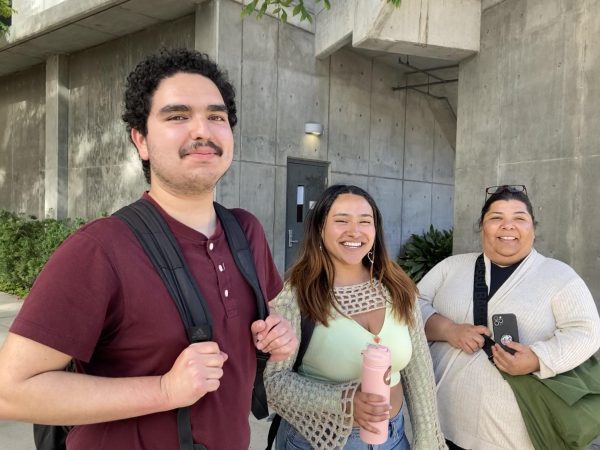Mayor calls for expansion of City College homelessness services training program
Todd Gloria hopes to partner with other regional colleges to create similar programs
San Diego Mayor Todd Gloria spoke to City Times Media journalist Ingrid Estrella about a variety of issues, including the need for more housing, at the recent “Love Your Wetlands Day.” In his latest city budget Gloria allocated additional funding to City College’s first-of-its-kind homeless services training program, which was developed in partnership with the San Diego Housing Commission. Photo by Kathy Archibald/City Times Media
February 8, 2022
Mayor Todd Gloria praised a unique San Diego City College certificate program designed to prepare students to work in the homelessness services sector.
He also called for the program to be expanded.
The Homelessness Program for Engaged Educational Resources, or PEER, is a first-of-its-kind partnership between City College and the San Diego Housing Commission, the agency that oversees homelessness and affordable housing resources for the city of San Diego.
“This partnership is helping us to create the future workers for these proven solutions to homelessness,” Gloria said in a Feb. 3 invitation-only press event.
PEER was originally launched in October 2020 with a $187,000 grant from the SDHC. In June 2021 the commission voted unanimously to renew PEER’s funding with an added $250,000 Gloria allocated for the program from the American Rescue Plan.
Lisa Jones, SDHC’s executive vice president of strategic initiatives, said the program was created to help alleviate the staffing shortages that plague the homelessness services sector.
“We needed to start figuring out how to build that workforce up, and training opportunities that were accessible and affordable to a lot of people that were interested in doing that work,” Jones said.
Gloria said he hoped to expand the program to other colleges in the region, as well as to expand City’s program to develop career pathways in the homelessness services sector.
“This is extremely difficult (work), both from a physical and emotional mental perspective,” Gloria said. “You’re interacting with very, very challenged individuals and these are not always the highest paid jobs.”
The key, Gloria said, was to develop career pathways that allow individuals who begin working in outreach to progress to higher paid roles like program manager or even executive partner in a related nonprofit.
“That’s how you get the level of professionalism, expertise, the ability to really drive change on this issue,” he said.


